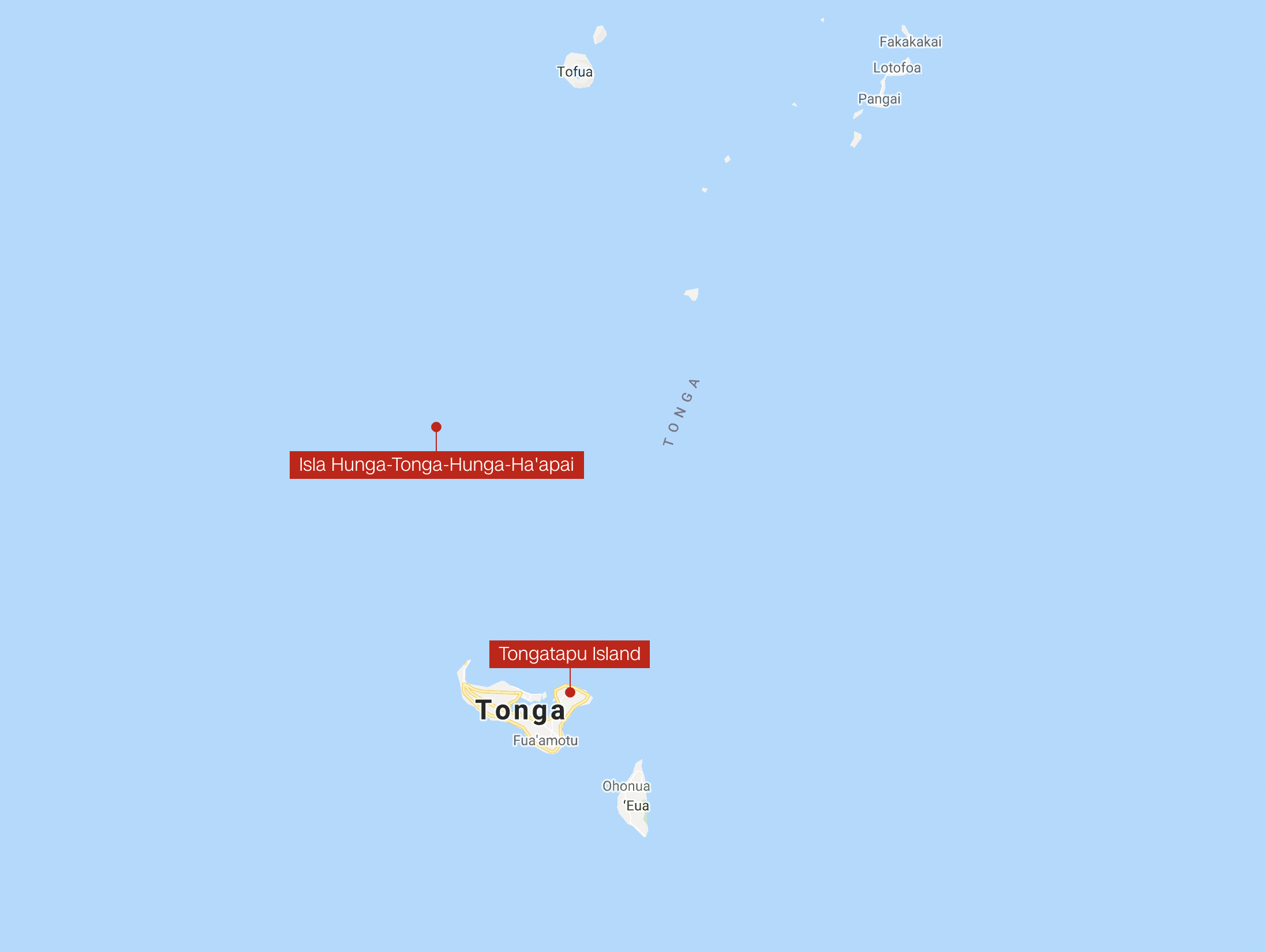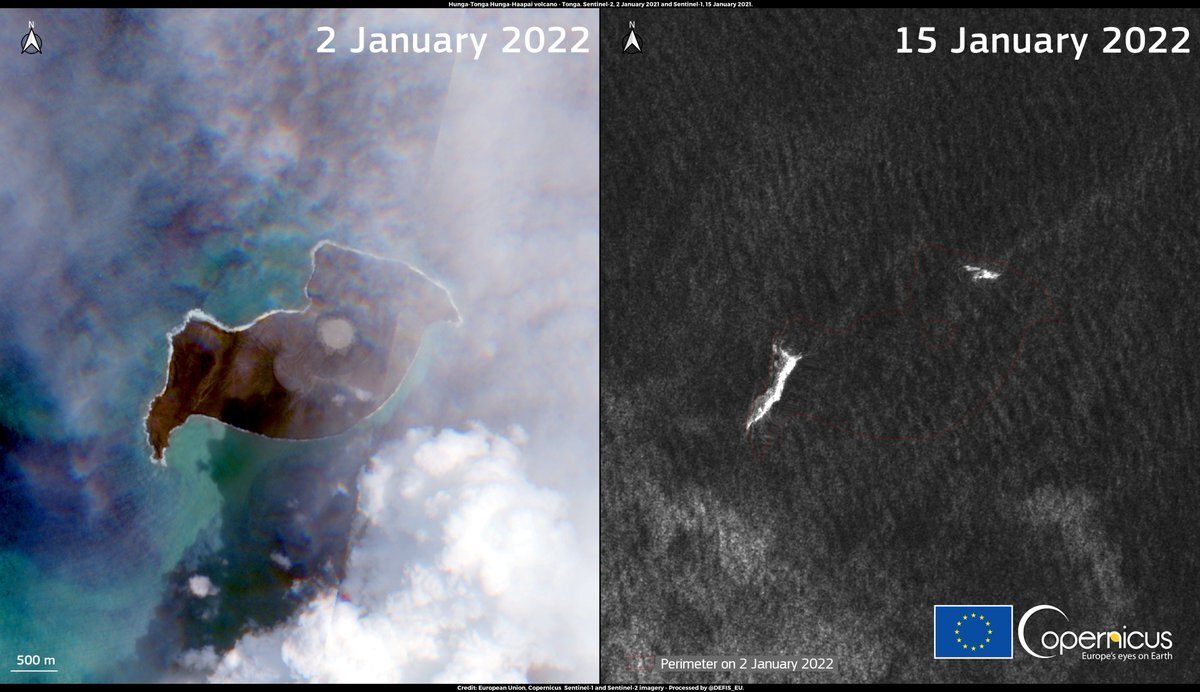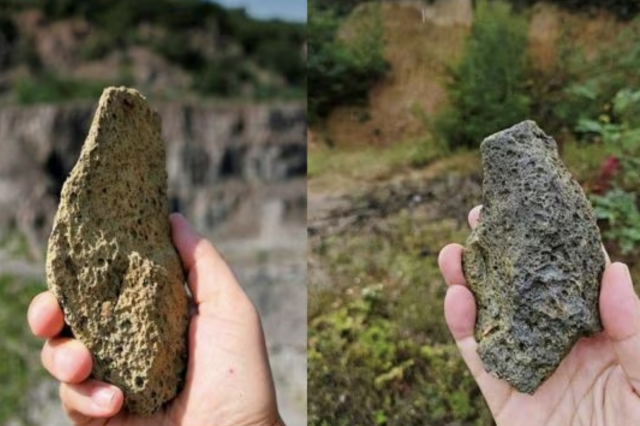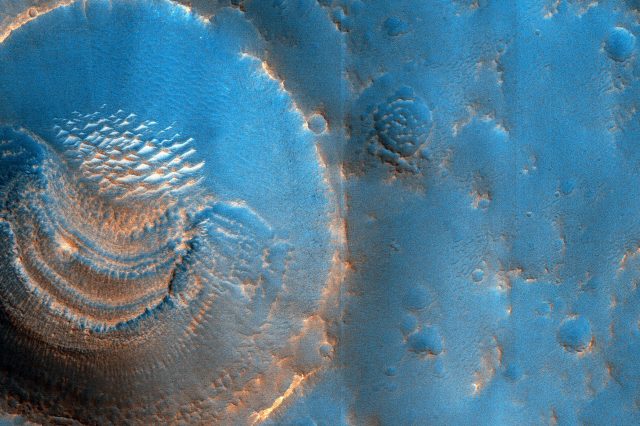A disastrous eruption took place in the Tonga Archipelago on 15 January causing an entire volcanic island to completely vanish, as can be seen by comparing optical images of 2 Jan. and Sentinel1's SAR image acquired ~12 h after the eruption on January 15, 2022.
The island of the Tonga-Hunga Haapai volcano, which registered a violent eruption on January 15, has practically disappeared, satellite images have revealed.
The volcanic eruption was so powerful that its aftershock was felt across the globe, with a gigantic mushroom of steam, gas, and ash shooting into Earth’s atmosphere violently, as various videos and photographs have revealed.
The Hunga-Tonga-Hunga-Ha’apai volcano is located beneath the ocean’s surface, squeezed in between two small islands. As a result, only about a hundred meters of the volcano were visible above sea level.
An eruption created this curious landmass area in the middle of Polynesia in December 2005. Now, researchers say it no longer exists, as can be verified by comparing satellite images taken by the EU’s Sentinel 2 satellite on January 2, with another from Sentinel 1 taken 12 hours after the large eruption, when the cloud dissipated enough to observe the area from space.
https://twitter.com/CopernicusEU/status/1482656119038394370
Located about 45 kilometers northwest of the Tongan capital Nuku’alofa and 500 meters long, the Volcanic island took shape between two islands formed by the underwater volcano after it erupted in December 2015.

The recently posted satellite images reveal that only the vestiges of those two islands remain today.
According to researchers, the island was formed mainly by the accumulation of fragmented magmatic rock after the volcanic eruption.
https://twitter.com/defis_eu/status/1483020866258714625
According to reports, the eruption on Saturday, January 15, 2022, was the biggest recorded on the planet in more than three decades.
New Zealand-based volcanologist Shane Cronin said in n interview with Radio New Zealand that such an eruption was best witnessed from space.
Various images and videos captured by satellites orbiting the planet have revealed the dramatic moment the underwater volcano erupted, resulting in a massive plug of ash, gas, and steam shooting up to twenty kilometers into our planet’s atmosphere.
Although the volcano has shown regular activity over the past few years, none have been as violent as the eruption that shook the planet on January 15, 2022.
Before this eruption, the volcano began erupting in December 2021, with reports of gas, steam, and ash shooting tens of kilometers into the atmosphere.
On January 14, another massive eruption was registered, culminating with that of January 15, an eruption that was so powerful it sent shockwaves across the planet, triggering various tsunami waves along the way.
The island of Tongatapu was struck by tsunami waves of at least a meter in height, causing massive flowing and damaging coastal properties, CNN reported.
Tonga, home to the underwater volcano, is a country of more than 170 islands in the South Pacific, located 800 kilometers from the country of Fiji and over 2,300 kilometers from New Zealand.
Join the discussion and participate in awesome giveaways in our mobile Telegram group. Join Curiosmos on Telegram Today. t.me/Curiosmos





